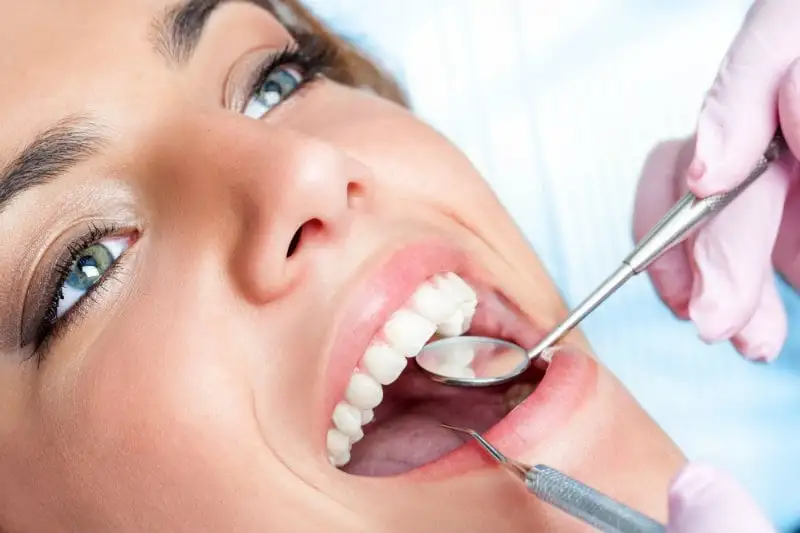Dental Hygiene (Cleaning)

The benefits include:
- Plaque removal
Tartar (also referred to as calculus) and plaque buildup, both above and below the gum line, can result in serious periodontal problems. Unfortunately, even with a proper home brushing and flossing routine, it can be impossible to remove all debris, bacteria and deposits from gum pockets. The experienced eye of a dentist or hygienist using specialized dental equipment is necessary to catch potentially damaging buildup.
- A healthier looking smile
- Fresher Breath
It should be noted that advanced gum disease cannot be completely reversed, but prophylaxis is one of the tools Dr. Aveen Hassan can use to effectively halt its progression
Probing
healthy gums
are my gums healthy?
If your gums are swollen, bright red or purple coloured, if they bleed spontaneously or when you brush or floss, if they feel tender or painful to touch, if you have loose permanent teeth, if you feel a change on the fit of your teeth while biting, or if you experience bad breath, you should see your dentist the sooner you can!
Gum Disease (Periodontal Disease):
Gingivitis:
Gingivitis and in this stage there is no commitment to the bone, making the disease totally reversible after treatment and adequate daily oral hygiene made by the patient.
Although not every case of Gingivitis will progress to Periodontitis, all cases of Periodontitis are preceded by Gingivitis.
Periodontitis
Periodontitis can be controlled, by adequate treatment, but the damage to bone and supportive tissues cannot be corrected anymore. At this more advanced stage of disease, your Hygienist or Dentist will prescribe you a deep cleaning procedure.
Click here to learn more about DEEP CLEANING PROCEDURES
The regular dental cleaning appointment for an adult usually will take 45 minutes (3 scaling units), but it is important to be aware that, depending on the conditions of a patients oral hygiene, and on the regularity of his/her cleaning appointments, it can be necessary to schedule more time or additional appointments to effectively remove all debris, bacteria and deposits from your teeth and gums. So, make sure you visit your dentist regularly and are always up to date with your dental check-ups and cleaning visits to avoid problems and the necessity of a longer treatment. We recommend that professional dental hygiene should be performed twice annually as a preventative measure, but should be completed every 3-4 months for periodontitis sufferers. Remember, regularity is the key to prevent oral disease and decrease the chances of infection, disease and longer treatments.









